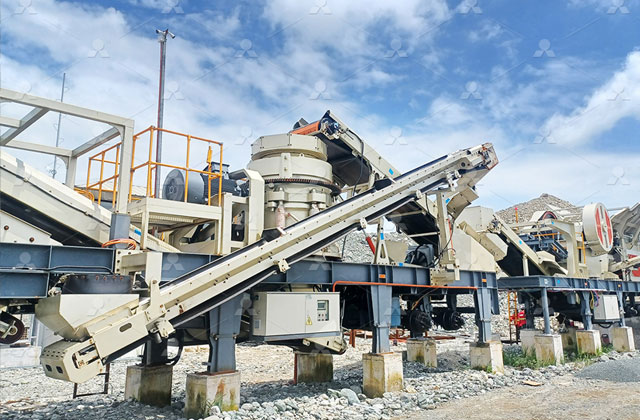Mobile crushers are indispensable equipment in industries like mining, construction, and recycling. They provide the flexibility of crushing materials directly at the job site, thereby saving time and transportation costs. Selecting the right type of mobile crusher depends on various factors such as the type of material to be crushed, the required output size, and the site conditions. Let’s delve into the types and selection criteria of mobile crushers:

Types of Mobile Crushers:
- Jaw Crushers: These crushers use a movable jaw that exerts force on the rock by pressing it against a fixed jaw. Jaw crushers are versatile and suitable for various materials, including hard rocks and recycled concrete. They are ideal for primary crushing tasks.
- Impact Crushers: Impact crushers use the principle of impact to crush materials. They feature a high-speed rotor with blow bars or hammers that impact the material, breaking it into smaller pieces. Impact crushers are suitable for shaping applications and secondary crushing tasks.
- Cone Crushers: Cone crushers operate on the principle of compression crushing. They consist of a stationary mantle and a rotating eccentric shaft that gyrates the cone mantle. Cone crushers are suitable for secondary and tertiary crushing applications, particularly when producing finer particles.
- Mobile Screens: While not crushers per se, mobile screens are often used in conjunction with crushers to separate materials by size. They are essential for pre-screening and scalping operations to improve crusher efficiency and product quality.
Selection Criteria:
- Type of Material: Consider the hardness, abrasiveness, and moisture content of the material to be crushed. For example, jaw crushers are suitable for hard and abrasive materials, while impact crushers are better for softer materials.
- Required Output Size: Determine the desired output size of the crushed material. Different crushers produce different particle sizes, so choose a crusher that can achieve the required size range efficiently.
- Capacity Requirements: Evaluate the required production capacity in terms of tons per hour or cubic meters per hour. Ensure the selected crusher can handle the anticipated production volume without causing bottlenecks.
- Mobility and Site Conditions: Assess the site conditions where the crusher will be used. Consider factors such as terrain, space constraints, and access to power sources. Choose a mobile crusher with the appropriate mobility features, such as tracks or wheels, to navigate various terrains easily.
- Operational Costs: Evaluate the operating costs associated with the crusher, including fuel consumption, maintenance, and wear parts replacement. Opt for a model that offers a good balance between initial investment and long-term operating costs.
- Environmental Considerations: Take into account environmental regulations and emissions standards applicable to your operation. Select crushers with efficient engine technologies and dust suppression systems to minimize environmental impact.
- Additional Features: Consider optional features such as remote monitoring, telematics, and automation capabilities that enhance operational efficiency and safety.
Choosing the right type of mobile crusher requires careful consideration of various factors such as material properties, output requirements, site conditions, and operating costs. By assessing these criteria comprehensively, you can select a mobile crusher that meets your specific needs and maximizes productivity while minimizing operational costs.
